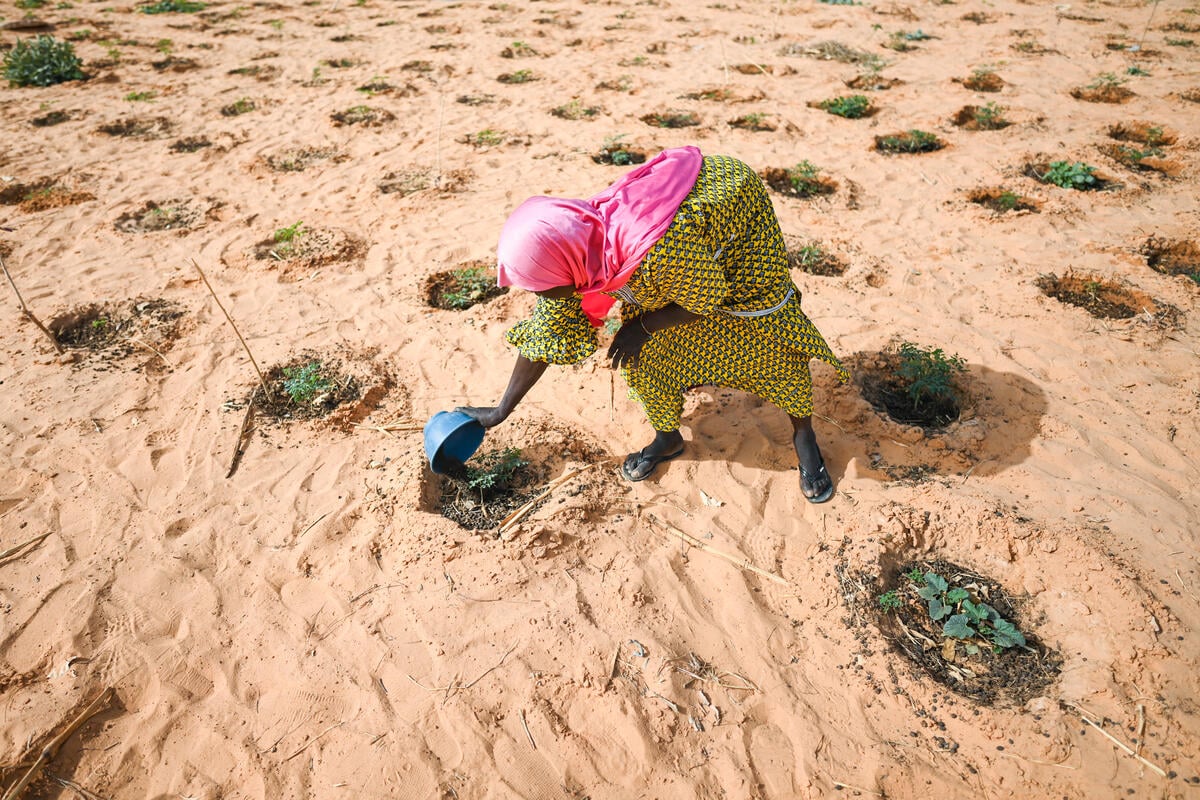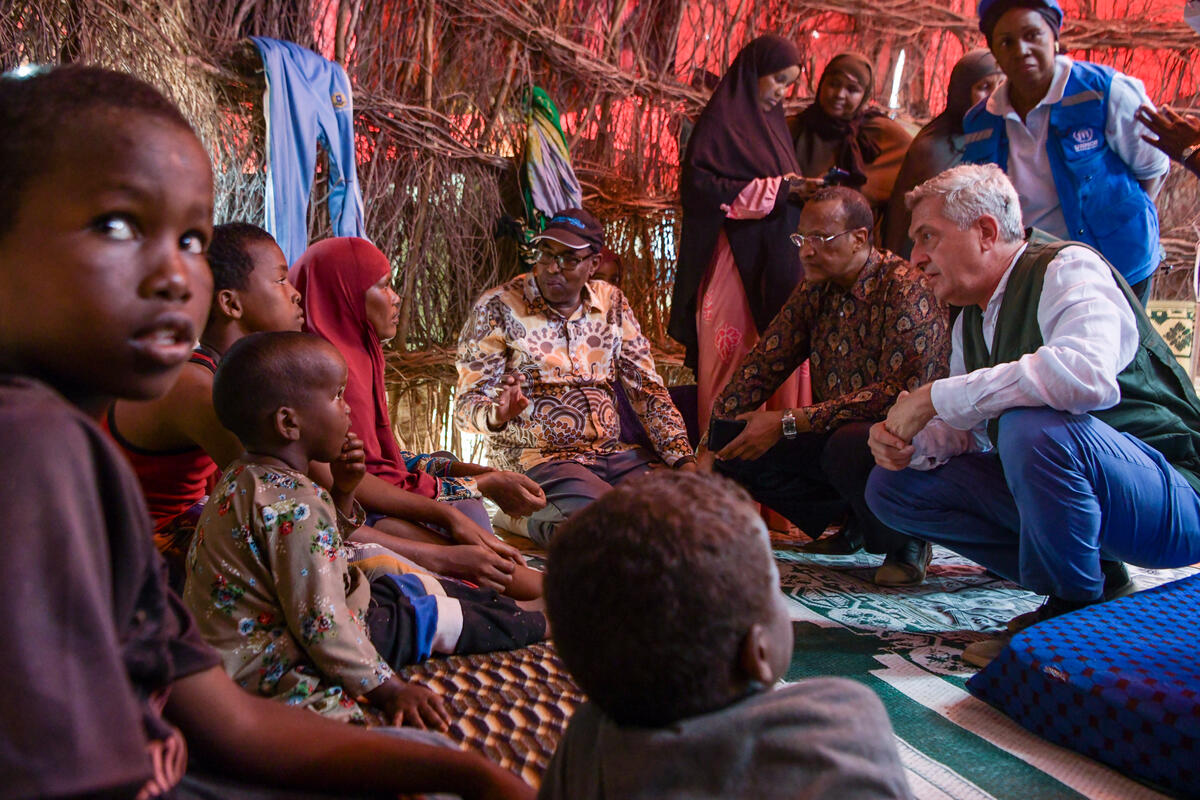New UAE, UNHCR partnership agreement to aid displaced in Pakistan
New UAE, UNHCR partnership agreement to aid displaced in Pakistan
The government of the United Arab Emirates (UAE) and UNHCR yesterday (Monday) signed a partnership agreement to support vital humanitarian operations in Pakistan. The agreement - signed on the UAE's behalf by the Khalifa Bin Zayed Al Nehayan Foundation - will provide for the needs of internally displaced people, mainly women and children, living in precarious conditions. The partnership includes procurement of basic relief items such as tents, blankets, sleeping mats, plastic sheeting, mosquito nets and kitchen sets to displaced Pakistani families living in some 21 camps or with host families.
It will also help facilitate the voluntary return of displaced people in the north-west of Pakistan, where there are more than 2 million displaced people in the North West Frontier Province and the Federally Administered Tribal Areas.
Panos Moumtzis, UNHCR's head of resource mobilisation, attended the signing in Abu Dhabi and said the agreement underscores the UAE's important role in international humanitarian work. The agreement creates one of the most important partnerships UNHCR has embarked upon in the region in the last decade, he added.
Mohamed Haji Al Khoori, executive director of the Khalifa Bin Zayed Al Nehayan Foundation, also expressed appreciation for the agreement and highlighted the needs of displaced families. He said supporting those needs was considered a duty "according to our traditions and values." The Abu Dhabi-based Khalifa Bin Zayed Al Nehayan Foundation, which was established in 2007, enjoys an independent legal status and has the authority to implement charitable activities, provide assistance to the needy and provide educational assistance as well as social, health and religious services. The foundation has a mandate to operate in a global capacity.
On the ground in north-west Pakistan, meanwhile, preparations continue in the displacement camps for the upcoming monsoon season, which is expected to start in mid-July. Some 260,000 of the more than 2 million internally displaced are in 21 camps. UNHCR and its partners have been completing work on drainage systems in several of the camps. Depending on the intensity of the monsoon, some families may have to be relocated to other areas less prone to flooding.
At the same time we prepare for the monsoon, we and our partners continue to carry out work to provide screens from the sun in the camps. Temperatures can reach up to 48 degrees Celsius, making life in a tent unbearably hot.
Our teams report that 652 families (4,200 individuals) have left one camp, Yar Hussain, since early July but it remains difficult to establish their destination. Some are believed to have gone back to their villages of origin in Buner district, while others might have moved in with host families in Swabi and Mardan districts in anticipation of the monsoon.
Outside the camps, where the vast majority of the internally displaced are currently located, we are continuing the distribution of relief supplies to those living with host families and in school buildings. Since June 22, a total of 25,630 families (more than 166,000 people) have received such assistance in Charssada, Nowshera and Mardan districts. Much of the aid is distributed through "humanitarian hubs" by our partner, SRSP (Sarhad Rural Support Programme). The displaced are provided with blankets, sleeping mats, jerry cans, kitchen sets, buckets, mosquito nets, plastic sheeting and soap.
UNHCR, its partners and other UN agencies are currently discussing with the government the best ways to assist the eventual return of displaced people.








